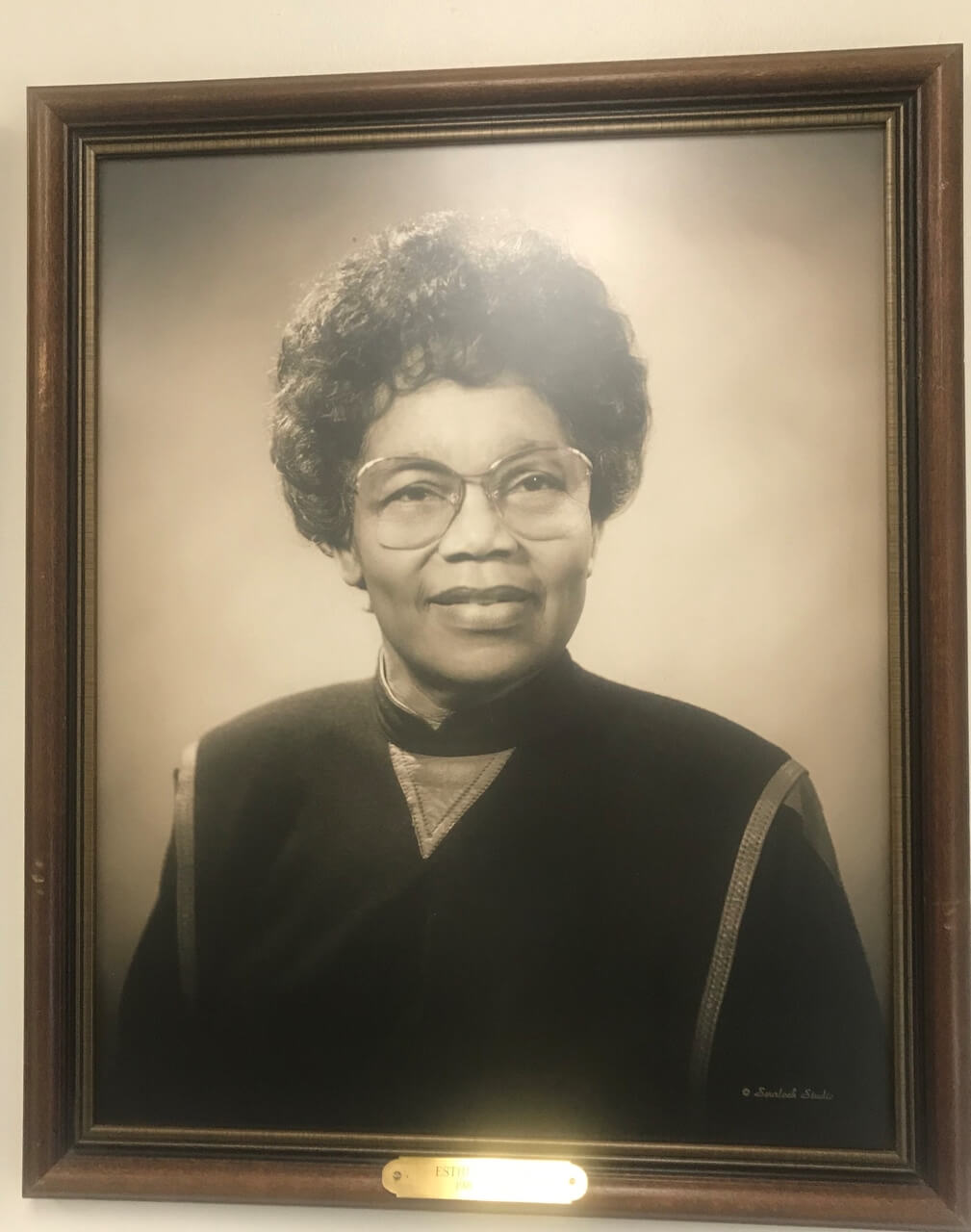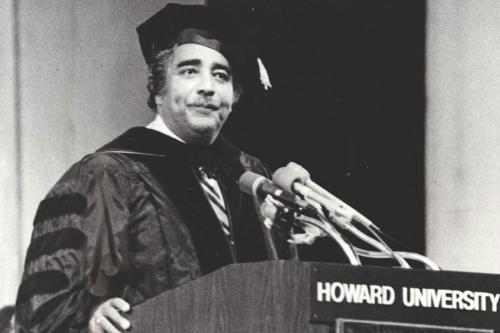WASHINGTON - Esther Ottley, Ph.D., the first woman to serve as Interim Dean of Howard University Graduate School from 1986 to 1988, passed away on February 20. She was 91 years old. Funeral arrangements were held Sunday, March 8 at Metropolitan Seventh-day Adventist Church.
 Ottley was the first black woman to graduate with a BA in mathematics from Andrews University. She was a member of the Class of 1954. Shortly after graduation, she married her college sweetheart Dr. Neville Ottley in 1955. She moved to Washington, D.C. with her husband while he finished his last two years of medical school at Howard University (‘57). Ottley began her teaching career at Howard University while she was a mathematics/physics doctoral student at American University.
Ottley was the first black woman to graduate with a BA in mathematics from Andrews University. She was a member of the Class of 1954. Shortly after graduation, she married her college sweetheart Dr. Neville Ottley in 1955. She moved to Washington, D.C. with her husband while he finished his last two years of medical school at Howard University (‘57). Ottley began her teaching career at Howard University while she was a mathematics/physics doctoral student at American University.
“Dr. Ottley’s commitment to Howard was remarkable. She is remembered fondly for the time she served as Interim Dean. Of critical note, too, is the role she played as the founding associate dean of the Graduate School. She was among many women whose talent made room for itself at Howard,” said Dana A. Williams, Ph.D., Howard University’s current interim dean of the Graduate School.
After Ottley graduated from AU in 1965, she was promoted in the Howard University Math Department and received tenure teaching courses such as calculus and algebra. Ottley became the founding associate dean of the Graduate School in 1976. During this time, the school was reorganized in its current structure with divisions in the arts & humanities, biological & life sciences, engineering & physical sciences, and social sciences.
“I will always remember Dr. Ottley as an effective administrator, who cared for and helped Howard University students/faculty strive for excellence. She was admired by all for her efficiency, kindness, and diplomacy. We were fortunate to have been included in her sphere,” said Louise Raphael, Ph.D., retired Howard University Math department faculty.
Ottley played a key role in the development of mathematics skills for Howard students while she taught in the math department.
“I first got an understanding of mathematical induction while in graduate school and grading papers as an assistant in the general mathematics program taught by Dr. Ottley. Because the book that she used with those students was written in a very simple way, it turned out to be the perfect level in which I could grasp mathematical concepts unlike the advanced calculus and topology books in the courses I was taking,” said Richard Bayne, Howard University mathematics alumni and retired professor.
It is of no surprise that Ottley led the design of the math program that became a part of Howard’s Center for Academic Reinforcement (CAR). CAR was the University’s academic support unit that provided a multitude of services for its students. It was designed to help students who needed to strengthen skills in the areas of math, English, and study skills.
Not only did CAR assist high school graduates entering college for the first time; it also provided support to enrolled students who had academic needs in programs that required them to meet satisfactory objectives of one or more CAR courses.
For example, students enrolled in a mathematics course had the opportunity to explore areas of mathematics extending from format methods and habits of performance courses to fundamentals for reliably determining the type and sequence of courses most suitable for success in their programs. CAR no longer exists, but the tutoring and academic support services it fostered are available with the Office of Undergraduate Studies.
Ottley was asked to serve as a permanent dean of the Graduate School, but she declined out of concerns for potential Sabbath conflicts. She continued her role as associate dean until her retirement in June 1994. Shortly after Ottley retired, Howard University honored her with the Esther Ottley Graduate Fellowship. This award is a one-year, non-renewable award offered to a female doctoral student who demonstrates the qualities of leadership Ottley exhibited.
“I am reminded of Dr. Ottley’s service each time I walk into my office and see her picture—the lone woman—among former deans on the wall as you enter the suite. I give her a wink and the nod, a small gesture of thanks for the path she charted on the one hand and a commitment to do my level best to make her proud on the other. She won’t be forgotten,” said Williams.
Howard University, the Graduate School, and the Mathematics Department extends its deepest condolences to the Ottley family and the many people who were enriched through her legacy.
The Ottley family requests contributions are made to the West Indies College Preparatory School (WIC Prep) — Dr. Esther Ottley Memorial Fund. Please contact Jamie A. Triplin, Graduate School communications and development director at jamie.triplin@howard.edu to make a direct donation to the memorial fund.
# # #
(photo courtesy of Howard University)
About Howard University Graduate School
Howard University offered its first master’s degree in 1867—the same year it was established. In 1934, the Graduate School was formally established and reorganized to its current structure with divisions in the arts and humanities, biological and life sciences, engineering and physical sciences, and social sciences. The school awarded its first doctorate degree in 1958 in the field of chemistry. The school offers 24 master’s, 31 Ph.D. and 7 M.D./Ph.D. Programs. The Graduate School has consistently issued on average over 100 doctoral degrees per year for the last three years. For more information, visit, www.gs.howard.edu
About Howard University
Founded in 1867, Howard University is a private, research university that is comprised of 13 schools and colleges. Students pursue studies in more than 120 areas leading to undergraduate, graduate and professional degrees. The University operates with a commitment to Excellence in Truth and Service and has produced one Schwarzman Scholar, three Marshall Scholars, four Rhodes Scholars, 11 Truman Scholars, 25 Pickering Fellows and more than 70 Fulbright Scholars. Howard also produces more on-campus African-American Ph.D. recipients than any other university in the United States. For more information on Howard University, visit www.howard.edu




